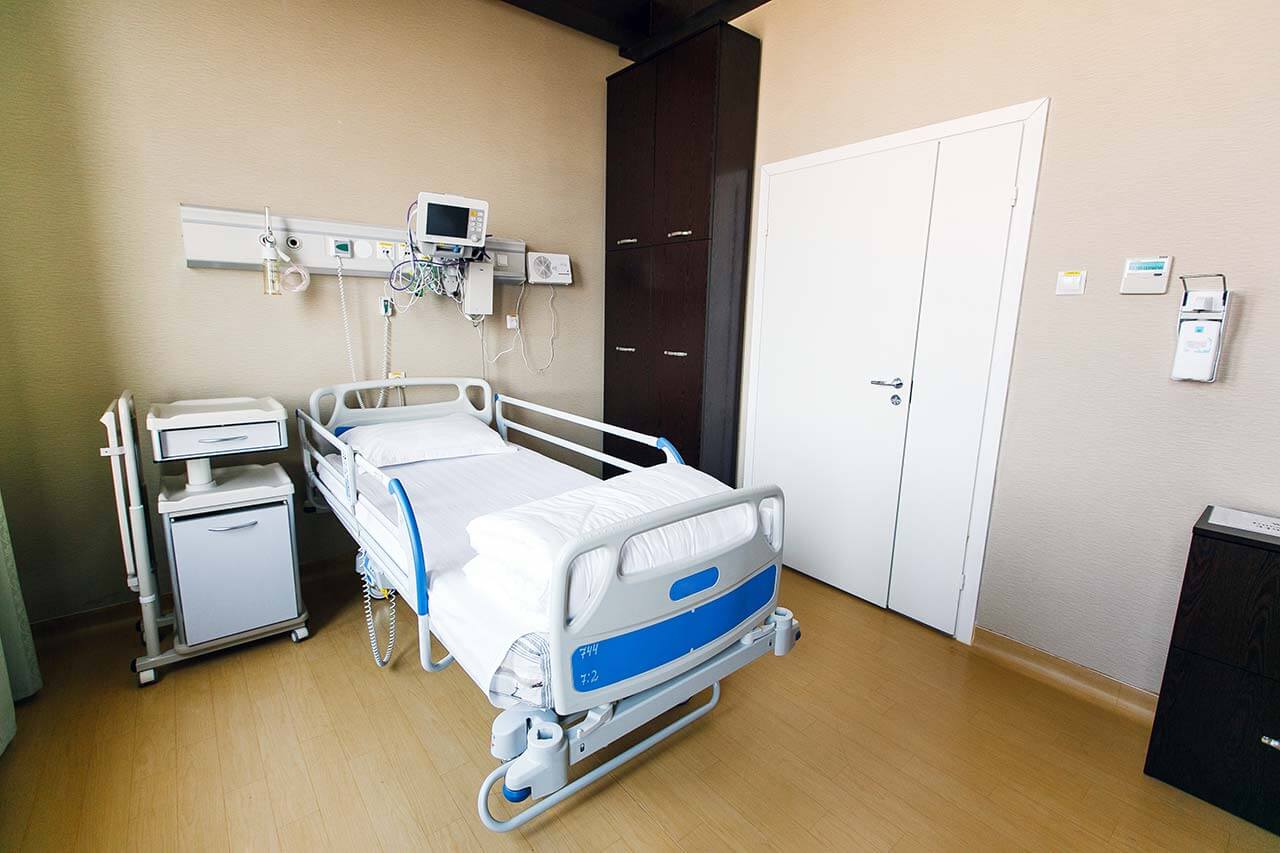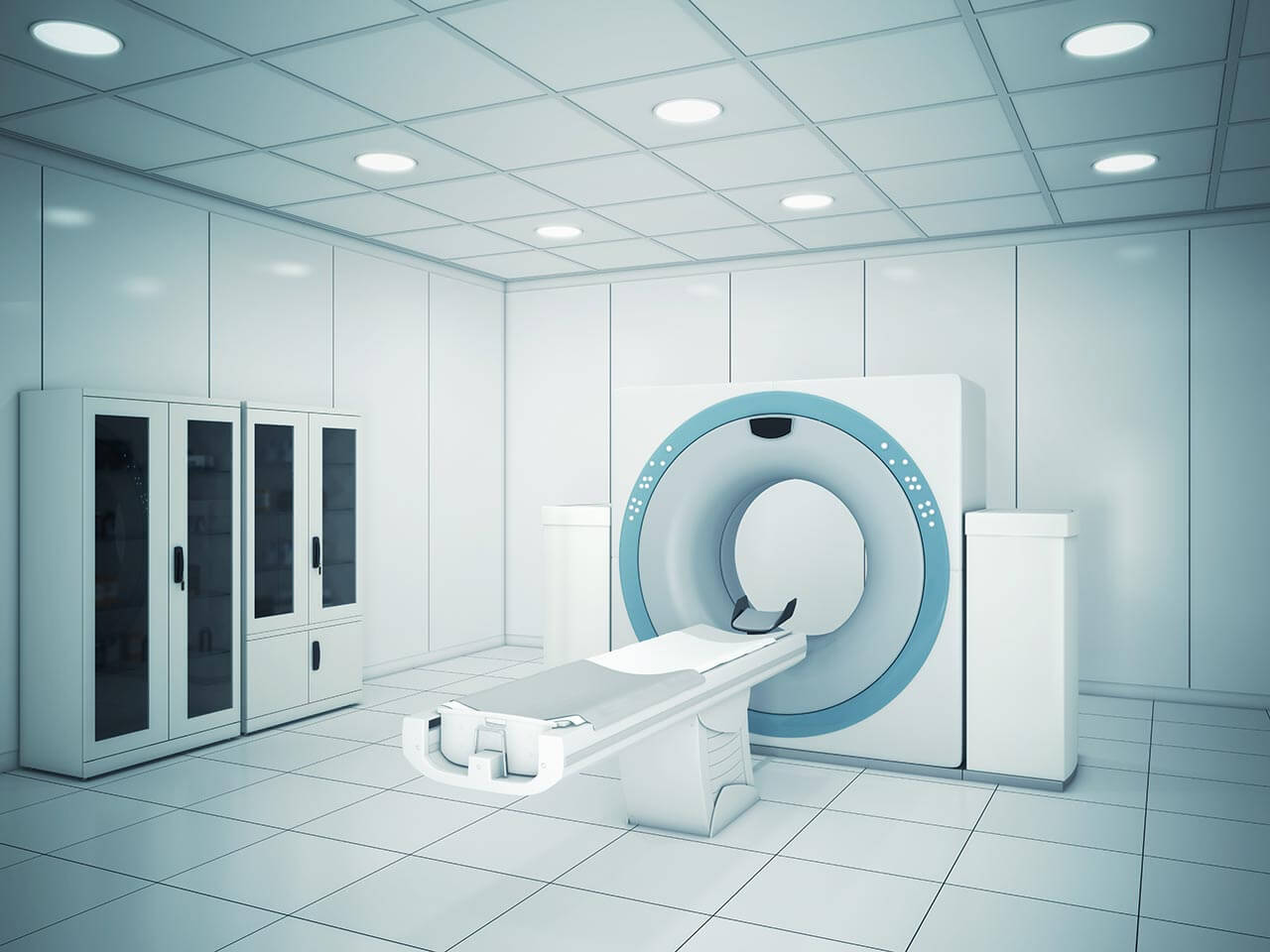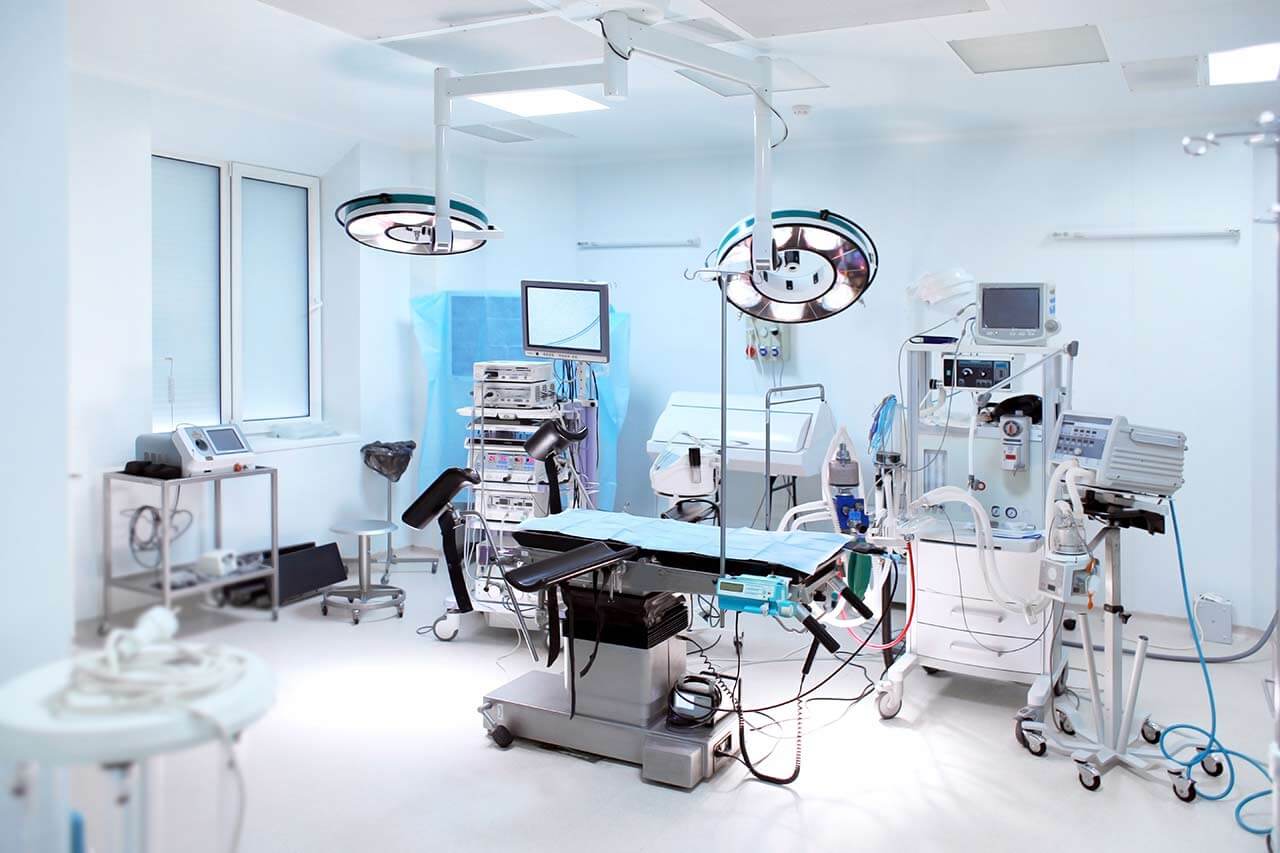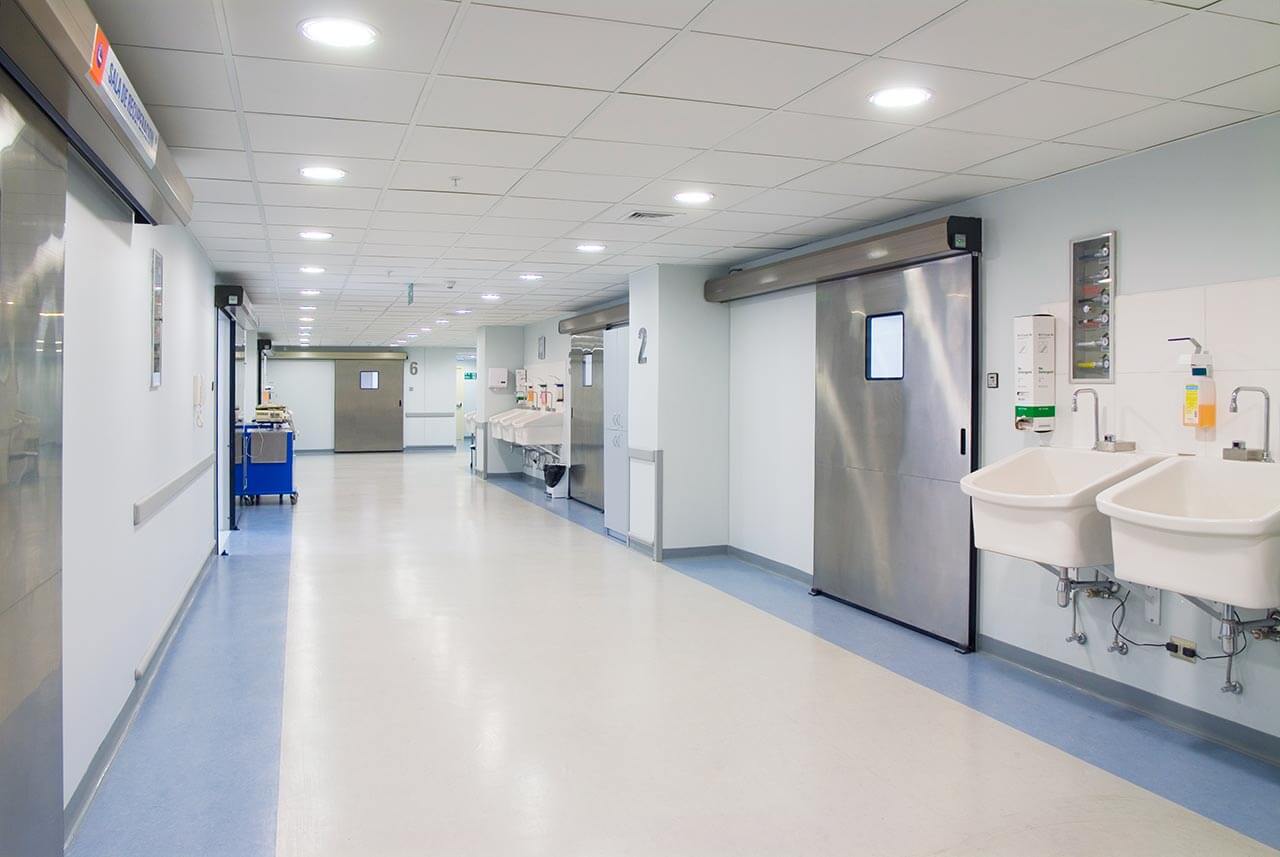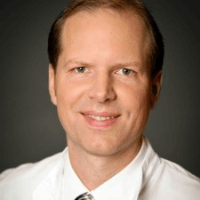
The program includes:
- Initial presentation in the clinic
- clinical history taking
- physical examination
- laboratory tests:
- complete blood count
- biochemical analysis of blood
- Lipid metabolism (HDL/LDL, cholesterol,
triglycerides Lip(a), homocysteine) - blood coagulation analysis (aPTT, PT, INR)
- inflammation indicators (CRP, ESR)
- metabolic status (uric acid, total glucose, HbA1c)
- cardiovascular disease risk markers
- kidney function test (creatinine, urea)
- TSH
- doppler/ duplex receptacles of lower extremities
- angio-MRI from aorta and of lower extremities
- duplex peripheral arteries
- preoperative care
- open endarterectomy or angeoplasty
- daily wound care
- blood transfusions (if needed)
- symptomatic treatment
- control examinations
- the cost of essential medicines and materials
- nursing services
- full hospital accommodation
- developing of further guidance
Required documents
- Medical records
- X-ray examination (if available)
Service
You may also book:
 BookingHealth Price from:
BookingHealth Price from:
About the department
The Department of Vascular Surgery and Angiology at the Alfried Krupp Hospital in Essen-Ruettenscheid deals with the diagnostics and treatment of patients with all types of diseases of the arteries, veins and lymphatic vessels. The medical facility offers the full range of modern therapeutic options, ranging from conservative therapy to endovascular and open surgical interventions. The priority in the department's clinical practice is given to the treatment of vascular stenoses and occlusions, abdominal aortic aneurysms, occlusive peripheral arterial disease, varicose veins, and deep vein thrombosis. In addition, the department is distinguished by its special competence in interventional procedures for the formation of dialysis access, the treatment of ulcus cruris and diabetic foot syndrome. The medical facility is certified by the German Society for Vascular Surgery (DGG) and the German Society for Angiology (DGA), which testifies to the excellent quality of medical care according to the very latest standards. Vascular surgeons and angiologists cooperate closely for the benefit of their patients in order to effectively restore their health. The department is headed by Dr. med. Thomas Nowak.
The department has excellent technical resources for high-quality diagnostics, which is essential in choosing the most effective course of therapy. The department's diagnostic rooms are equipped with advanced systems for color duplex sonography, contrast-enhanced sonography, continuous wave Doppler sonography, assessment of transcutaneous oxygen tension (TcPO2), capillary microscopy, CO2 angiography and other tests.
The tasks of angiologists include conservative treatment of diabetic foot syndrome, ulcus cruris, deep vein thrombosis, varicose veins, thrombophilia, lymphedema and circulatory disorders in the lower limbs. The specialists use highly effective latest generation medications, infusion therapy, compression therapy, decongestive therapy and other methods. If the pathology has reached an advanced stage, and the patient requires more radical therapeutic measures, the department's specialists carry out endovascular interventions, which today are the gold standard in the treatment of vascular diseases. Such operations are performed in cooperation with vascular surgeons. When performing endovascular interventions, doctors use special catheters, which allow for access to the affected area of the vessel. The catheter is inserted into the vascular bed through an incision several centimeters long, under the guidance of ultrasound or CO2 angiography. The image of the operating field is transmitted to a large screen, so the doctor can clearly see the inner surface of the vessel and can perform the necessary therapeutic manipulations with maximum accuracy. In most cases, the department's doctors use endovascular techniques to implant stents and balloons in the treatment of aortic stenosis, occlusions and aneurysms.
In some cases, endovascular interventions do not allow the doctors to achieve a complete cure for vascular pathology, and therefore vascular surgeons perform hybrid operations involving a combination of endovascular and classical open techniques. The last-line therapy for vascular disease is open surgery. The advantage for the department's patients is the vast clinical experience of specialists in the field of endovascular and hybrid interventions, as well as the availability of a progressive technical base, due to which open interventions are performed only in especially complex clinical cases.
The department's main clinical focuses include:
- Angiology
- Pharmacotherapy with pills
- Infusion therapy
- Compression therapy
- Decongestive therapy
- Vascular surgery (focus on endovascular and hybrid techniques)
- Interventions for arterial diseases
- Recanalization of the arteries of the upper and lower extremities
- Arterial dilatation in their stenosis
- Arterial bypass surgery using autologous tissues and vascular prostheses
- Blood clot removal (thrombectomy)
- Interventions for pathologies of the arteries supplying the brain
- Dilation for carotid artery stenosis (including for stroke prevention)
- Interventions for aortic pathologies
- Open and endovascular interventions for aortic aneurysms
- Interventions for acute mesenteric ischemia
- Interventions for venous pathologies
- Interventions for varicose veins
- Interventions for deep vein thrombosis
- Interventions for pulmonary embolism
- Interventions for the formation of dialysis access, including revision interventions, placement of port systems and catheters
- Interventions for ulcus cruris
- Surgical debridement
- Skin plastic repair
- Vacuum therapy
- Biosurgery (larval therapy)
- Interventions for diabetic foot syndrome
- Revascularization
- Amputation
- Interventions for arterial diseases
- Other therapeutic options
Curriculum vitae
Higher Education and Professional Career
- Study of Human Medicine at the Faculty of Medicine, University of Duesseldorf.
- Postgraduate training in endovascular surgery, HELIOS Clinic Krefeld.
- July 2010 - January 2013 Head of the Department of Endovascular Surgery at the HELIOS Clinic Krefeld.
- Since January 2013 Head of the Department of Vascular Surgery and Angiology at the Alfried Krupp Hospital in Essen-Ruettenscheid.
Clinical Interests
- Treatment of vascular stenosis with stent implantation.
- Treatment of carotid artery diseases.
- Treatment of atherosclerosis.
- Treatment of aortic aneurysms.
Photo of the doctor: (c) Alfried Krupp Krankenhaus
About hospital
The Alfried Krupp Hospital in Essen-Ruettenscheid began its work back in 1870, and large-scale restoration took place here in 1980. The medical facility is an academic hospital of the University of Duisburg-Essen, thanks to which it has access to innovations in the medical field, and also makes its own contribution to the development of modern therapeutic techniques. The hospital has 13 departments and various highly specialized centers, including the Breast Center, Endoprosthetics Center, Lung Cancer Center, Trauma Center and others. The hospital has 575 beds for patient hospitalization. The hospital also offers outpatient medical care. Every year, the hospital's team of doctors admits over 80,000 patients for diagnostics and treatment. For many years, the medical facility has held a leading position in the German medical arena, and is also widely known for its high quality standards in many other countries of the world. The hospital can be proud of its successful experience in providing medical care to foreign patients.
The priority fields of the hospital's work include the treatment of oncological, hematological, gastroenterological, gynecological, urological, neurological, orthopedic and other diseases. The high quality standards of medical care are facilitated by the constant updating of medical equipment and advanced training courses for medical personnel. The hospital widely applies modern methods of conservative treatment, progressive laparoscopic surgical techniques, as well as innovative robotic surgery using the da Vinci Xi system.
The medical facility has been awarded numerous quality certificates confirming the outstanding clinical work of its specialists. These include, in particular, a certificate of the German Society for General and Visceral Surgery (DGAV) in the field of bariatric surgery, colorectal surgery, pancreatic surgery and minimally invasive surgery, an endoCert certificate in the field of joint replacement surgery, a certificate of the German Cardiac Society (DGK) in the field of emergency cardiac care, a certificate of the German Cancer Society (DKG) in the treatment of prostate and lung cancer, a certificate of the German Stroke Society, a certificate of the German Society of Phlebology and others.
Special attention should be paid to the exceptional professionalism of the doctors working at the hospital, who apply all their rich experience and deep knowledge to restore the health of patients. The specialists use an individual approach in their work and carefully think over each treatment regimen so that the patient gets the maximum result, but at the same time the course of therapy is as sparing as possible. The hospital's team of doctors keeps pace with the very latest medical advances and actively implements them into clinical practice for the benefit of patients.
Photo: (с) depositphotos
Accommodation in hospital
Patients rooms
The patients of the Alfried Krupp Hospital in Essen-Ruettenscheid live in comfortable single and double rooms with light colors. For maximum convenience, each patient room has an ensuite bathroom with shower and toilet. The patient room includes a comfortable automatically adjustable bed with an orthopedic mattress, a bedside table, a wardrobe, a table and chairs, as well as a TV and a telephone. Wi-Fi is available upon request.
The hospital also offers enhanced-comfort rooms corresponding to the level of an upscale hotel room. Such patient rooms additionally include upholstered furniture, a safe, a minifridge, and an air conditioner. Daily fresh newspapers, seasonal fruits, coffee and tea are offered to the patient in the room (upon request).
Meals and Menus
The patients of the hospital are offered delicious meals three times a day. Breakfast and dinner are served buffet style with a wide selection of cheese, cold meats, vegetables, fruits, pastries, etc. For lunch, there is a choice of several set menus. The patients living in an enhanced-comfort room benefit from a separate menu for breakfast, lunch and dinner with a large assortment of delicious dishes.
Further details
Standard rooms include:
Religion
The services of representatives of religions are available upon request.
Accompanying person
During an inpatient program, an accompanying person can stay with you in the patient room or in a hotel of your choice.
Hotel
During an outpatient program, you can stay in a hotel of your choice. The managers will help you choose the most suitable options.
